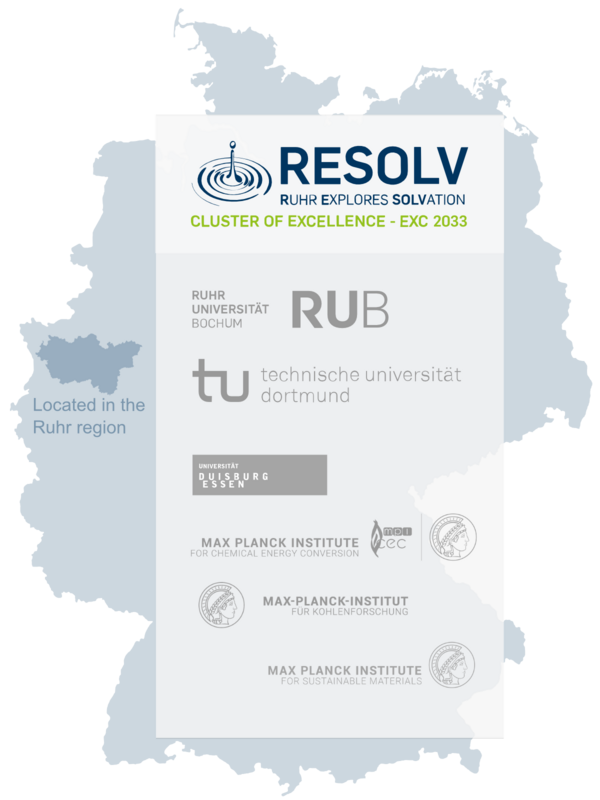The next big thing
The first retreat after the big 10-year anniversary celebration fully focused on the future. The main goal of this year’s retreat was to setting the course for RESOLV3.0. Over the course of three days, the participants not only talked about current research projects, but also discussed possible future topics for the Cluster of Excellence. In several brainstorming sessions, the RESOLV scientists came together to consider which topics are particularly interesting for the future. The young generation was involved, too. For the first time the PhD-students of RESOLV had the chance to put their heads together in their own brainstorming session. They were encouraged to brainstorm ideas about the direction they felt the research should take.
Topics of the future
As every year, a number of guests joined RESOLV scientists and PhD students. Dr. Marta Palacios Aréval from IETcc-CSIC, Madrid spoke about an important topic for the future, the “Role of chemical admixtures in the sustainability of concrete”. A completely different field, but definitely also a topic of the future, is machine learning. In this context Prof. Dr.-Ing. Sergio Lucia, TU Dortmund University, presented his talk: “Machine learning for the optimization and control of chemical processes” and Prof. Dr. Ralf Drautz, ICAMS, Ruhr University Bochum, spoke about "Atomic cluster expansion for learning the interaction between atoms". Dr. Ildikó Terebesi, INVITE GmbH, used INVITE as an example to show how infrastructural facilities can help to bring the results of science into industrial application. The last guest speaker was Prof. Dr. Manuel Alcarazo, Georg-August-University Göttingen, who presented his research on "Cationic phosphines and sulfonium salts for efficient synthesis".
New Masterpieces
In addition to talks and brainstorming, the traditional poster competition was held. In two poster sessions, the early career scientists could present their "Masterpieces". A jury awarded the best three posters, based on scientific content and the presentation of it. The poster on "Theoretical analysis of solvent dependent conformational ensembles of organic molecules based on spectroscopic data" by Dilber Tan was voted 3rd. The second place was awarded to Julia Haberhauer with "Investigation of a PLATICT System as Potential Light-Driven Motor" and the winner of the first place is Melania Prado Merini with the poster: "Solvent-Assisted Conformational Control of a Tunneling Reaction". The Dean of iGSS Stefan Kast presented the awards and certificates at the end of the retreat.



















